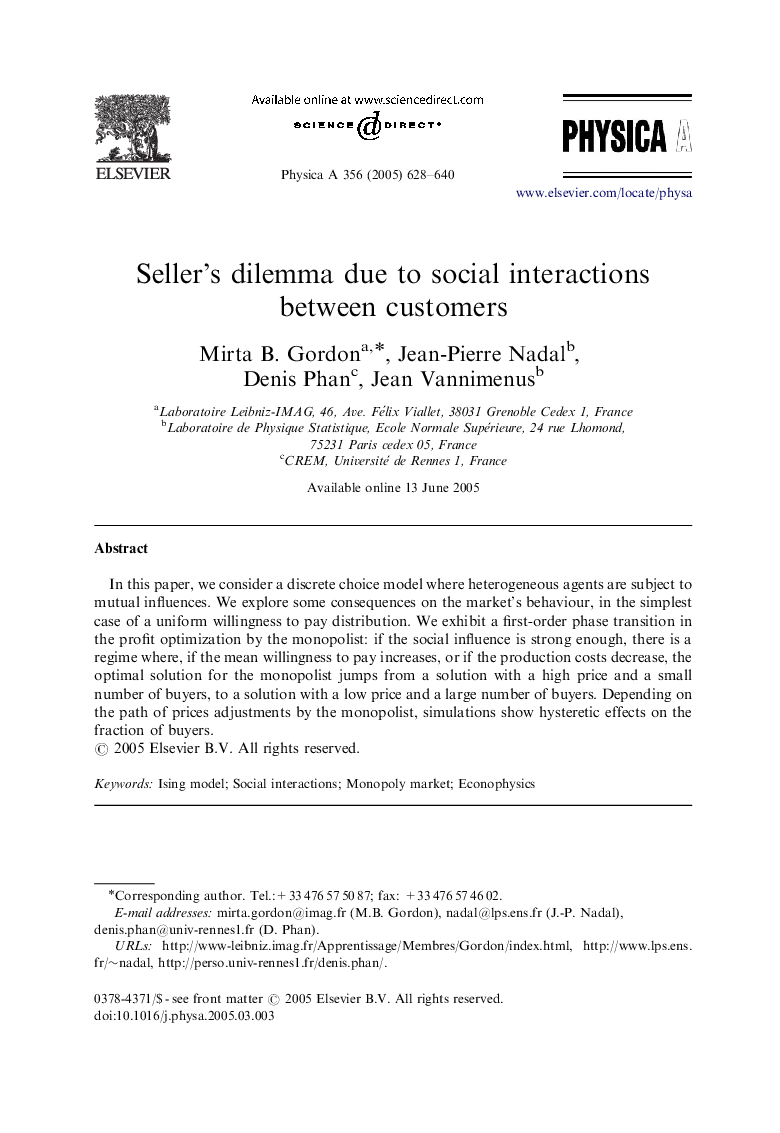| Article ID | Journal | Published Year | Pages | File Type |
|---|---|---|---|---|
| 9727576 | Physica A: Statistical Mechanics and its Applications | 2005 | 13 Pages |
Abstract
In this paper, we consider a discrete choice model where heterogeneous agents are subject to mutual influences. We explore some consequences on the market's behaviour, in the simplest case of a uniform willingness to pay distribution. We exhibit a first-order phase transition in the profit optimization by the monopolist: if the social influence is strong enough, there is a regime where, if the mean willingness to pay increases, or if the production costs decrease, the optimal solution for the monopolist jumps from a solution with a high price and a small number of buyers, to a solution with a low price and a large number of buyers. Depending on the path of prices adjustments by the monopolist, simulations show hysteretic effects on the fraction of buyers.
Related Topics
Physical Sciences and Engineering
Mathematics
Mathematical Physics
Authors
Mirta B. Gordon, Jean-Pierre Nadal, Denis Phan, Jean Vannimenus,
